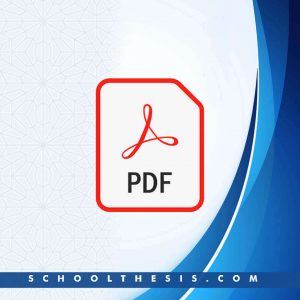The Role of Ecowas in the First Liberian Crisis

The Role of Ecowas in the First Liberian Crisis
Chapter One of The Role of Ecowas in the First Liberian Crisis
INTRODUCTION
Background Of The Study
The Economic Community of West African States (ECOWAS) is a sub-regional organisation in West Africa, with a membership consisting of Cape Verde, Senegal, The Gambia, Guinea, Guinea-Bissau, Sierra Leone, Liberia, Mali, Cote d’ Ivoire, Nigeria, Togo, Benin, Niger, Burkina Faso, and Ghana. In this project, I seek to examine the role played by ECOWAS as well as its military component, the ECOWAS Monitoring Group (ECOMOG), in the Liberian conflict, and to consider its performance as a conflict-management mechanism.
The first Liberian civil war ended over seventeen years ago, and as Liberia is currently at peace, it is too often unquestionably accepted that ECOWAS was successful in its attempt to bring about peace within the state. For example Khobe (2000) proclaims that ECOWAS was successful, but other authors such as Gberie (2003) disagree with such sentiments. Gberie (2003: 154) argues that peacekeeping missions can only be undertaken by West African states with “enormous foreign assistance”. It does then appear that at the very least there is dissent amongst the literature, with sides supporting varied positions, or advocating different agendas. I therefore seek to contribute to the discussion by widening the foci. Instead of merely concentrating on ECOMOG, I draw on ECOWAS itself to support my claim that the organisation only hindered Liberia, rather than pacified it. I will also briefly compare the relative performances of ECOWAS in the conflicts of Sierra Leone and Guinea-Bissau, to show that the organisation was unable to learn from its own mistakes in Liberia.
Chapter Plan
In this introductory chapter I highlight my research questions, and consider the current available literature, and how my own work fits in with that. My methodology and limitations are shown here as well. In the second chapter I provide a historical background of Liberia, portraying the environment into which ECOWAS would intervene. The creation of ECOWAS, how this impacted on the intervention, and the legal aspects and issues of self-determination are dealt with in chapter three. Chapter four concerns the intervention proper, and there I will look into the political and military behaviour of ECOWAS to highlight what I aim to show are gross failures. The concluding chapter assesses the relative performance of ECOWAS in two subsequent interventions, in Guinea-Bissau and in Sierra Leone. This I do to highlight that ECOWAS has not learnt sufficient lessons from Liberia, and in actual fact went on to make the same mistakes many years later.
Clarification of Terms and Limitations of Study
It is of importance to note that in this dissertation I deal with the entirety of ECOWAS as an organisation, as opposed to limiting myself to dealing with the states that officially partook in the military intervention in Liberia. The term ‘Community’ is used throughout interchangeably with ‘ECOWAS’. It is also of note that the term ‘West Africa’ always refers to ECOWAS member states.
I use the term ‘failure’ to indicate performances of the organisation that contravened its intended purposes. For example, when a member state breaches an ECOWAS protocol, I state that to be failure. Such failures I sum together to evaluate the performance of ECOWAS in its relationship with Liberia. It is vital to understand that Community members followed differing policies; hence performance appraisals are gauged by the organisation’s stated aims, as opposed to gauging them against any one state’s intentions.
Finally, it is highly important to be aware of the fact that this dissertation merely deals with the first Liberian civil war (1989-1996).
